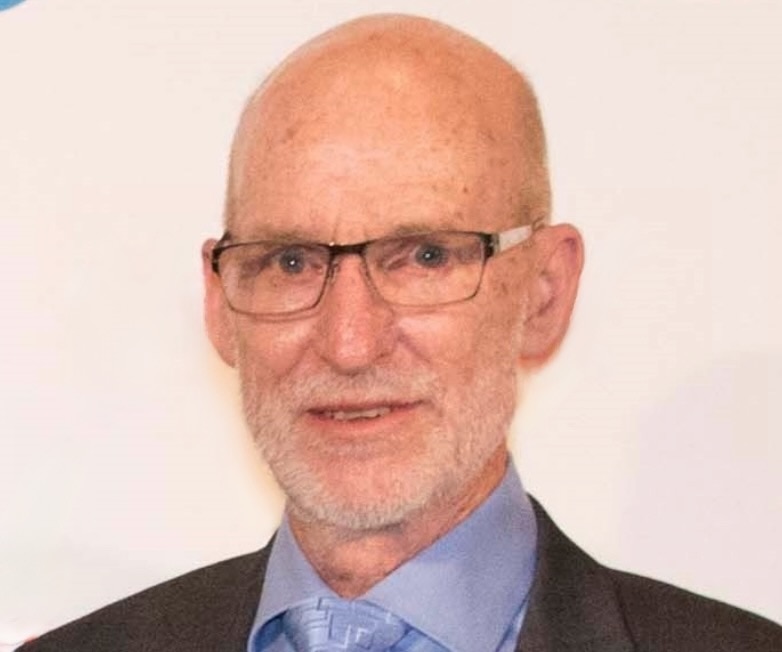Download John Bothamley’s critique of the grant-making sector
‘People with money should share it around;
I used to be rich’
John Bothamley CBE set up The Four Acre Trust in 1996 after achieving financial success from his career as an architect and property developer. In March 2023 the Trust closed after John decided to spend it down. Here he explains why…

John Bothamley CBE has donated more than £40million to smaller charities via thousands of grants, through the Four Acre Trust.
Around six or seven years ago, he decided he was going to spend the Trust’s money down and in March this year it closed its doors for good.
“I thought there’s going to be a lot of money left here if I’m not careful so I’d better get on and spend it,” John explained.
“I don’t have any family. I understand it can be different if you have family and dependents but it’s a bit of an imposition leaving a load of money to the trustees to spend in the way that I would like it spent. That’s what drove my decision really.
“I know someone who is going to leave their half brother £13 million – why?Because it’s family. It’s easier than having to think about what you’re going to do with it.”
He would advise anyone with a large legacy to think about spending it down and donating it while they are alive. But he accepts that some people will not want to engage with this idea or even try.
“You make your money one year and you spend your money one year – I don’t really get the idea of keeping it. Inheritance becomes an imposition if you leave too much.”
He mentions a trust worth £40m set up by a man who on his deathbed told his trustees to give it all away- just ‘get rid of it’.
“But the trustees aren’t really interested. They meet four times a year and spend about £1.5m a year on environmental charities. The rest of the money just sits there. Imagine what you could do with it,” he said.
‘Always back the person’
John’s philanthropy began with donating the ‘odd five or ten thousand’ to different charities.
“I’ve always felt sorry for those less fortunate,’ he explains.
“I found when I started my business you make a bit of money then when you make twice as much as the living wage you’re suddenly quite rich – once your mortgage is covered, your car, your holidays – if you’re making double that, then suddenly you’ve all got all this free money.
“So that’s when I started donating a bit more.”
Then one day at a fundraising event, a friend suggested he set up a trust.
“But my friend told me, ‘Never support capital projects and always back the person’ and I’ve always followed that advice ever since.
He set up The Four Acre Trust in 1996 and he ran it with his secretary.
It was before the time of the internet and they used to try and find organisations to give money to using phone directories or books, trying to find the right people.
A former Scout, John was keen to donate to organisations that worked with young people and the outdoors.
“We were looking for outdoor activity centres, things like that. But for the whole of the Trust’s life I’ve always been aware it has been a bit ad hoc.”
Because he was so keenly aware of the importance of early education and early childhood experiences, the Four Acre Trust consistently supported small charities that aimed to give children a better start in life.
Internationally the Trust supported charities that promoted eyecare or helped those who had lost their eyesight.
The Trust made the grants via smaller charities, feeling this would be the most effective.
“Organisations that turn over more than a million pounds sometimes become over bureaucratic and unwieldy,” John said.
Areas of work included charities that inspire young people to spend time outdoors, grasp opportunities and build confidence.
Grants also funded youth clubs and projects and work schemes for disabled people, mentoring and befriending, and residential breaks.
Investing in charities’ success
John describes his attitude to grant making as ‘the private equity’ route – seeing his donation as not just a gift but as an investment in the charity.
In return he expected the charities to be able to sell him their story about what they do and why it matters.
And he expected organisations to be able to tell him how the money was spent.
“It’s a transaction so I wanted it to be useful and work out and for whatever I’m supporting to be successful.
“But it’s also a relationship that you’re building which is why I’ve always gone in for three-year grants.”
He liked to arrange a visit to the charities he supported from time to time and is staggered by trusts that don’t visit the projects they support.
“I like arranging a visit – to see what’s happening and talk to a few people. I never take up too much time – it’s surprising what you can pick up in just an hour’s meeting.”

‘Don’t be afraid to be boring’
By taking time to visit and getting to know charities, John could see what they really needed – and these are often just the more mundane yet critical areas that allow a charity to function.
He said: “Our grants were generally for revenue expenses and to fund salaries.
“We also funded boring items such as rent and, our very first grant, was for legal expenses.
“More interesting grants were for holiday breaks and experiences.”
In the first ten years grants tended to be between ten and five thousands pounds but these levels increased over the years.
“We became more involved with those charities we had known for a number of years. I believe we followed the route of others in my position of wanting to be more generous to a fewer number of organisations. This also allowed us to spend more time with those we particularly liked,” John explains.
Grants given were around 20 per cent of funding so if an organisation had an income of over 500k the Trusts would never give them more than 100k.
“You don’t want them to be dependent on you,” John added.
Life after the Trust
Despite having spent so many years and so many millions on supporting charities, John is low key and modest about his achievements, acknowledging that, like in any endeavour, things don’t always go to plan.
“Sometimes things go wrong or you may be left with a feeling of ‘that wasn’t money well spent’. Maybe you’ve sent 20 kids away but only 12 turned up and you go through the reasons why.
“But we’ve done some nice schemes. They’ve done well. I’m not saying we turned the world round but it’s nice when things are still there and going.”
Will he miss running a Trust?
“I have to say that since its wrapped up and I’ve been talking to some people I want to fund privately – now I don’t have to ask anybody. I don’t have to sit at the computer and do a report which is good. There are no more procedures.
“But on the other hand some of the decisions are hard and I used to have a nice board.
“Difficult isn’t it because it’s nice to have another point of view to discuss things with.”
As the trust wound down John took the step of writing a critique called ‘A critique of the grant-making sector’ to share what he’s learned along the way.
He wants to revise it to talk about spending down and how he feels it’s irresponsible to leave large amounts of money for other people to deal with. “It’s a responsibility to spend it properly,” he adds.
Fair and share
Was he proud of his achievements?
“I’m a private person but I can get emotional and feel sad for people – but I’m not proud or anything.
“I do think we have a bit of a responsibility to others. So if you’re lucky than you look after those are unlucky. I think it’s fair. It’s all about being fair and share it about. If you know or have something you should share it.
“I think people with money should spread it around.”
Now that the Trust has closed, John will continue to give to good causes but independently.
Although there’s not much left, he adds.
“I used to be rich.”